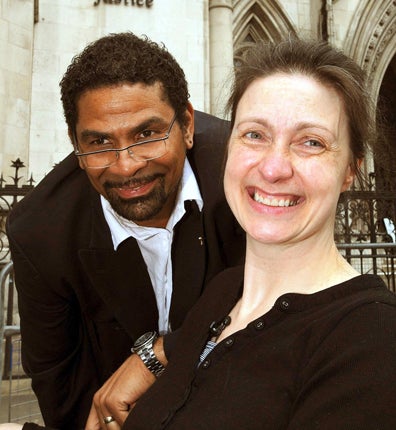Privacy law established by stealth in Britain, report says
Rising numbers of ordinary claimants are claiming privacy rights in legal actions

Britain has established a privacy law by stealth which has made inroads into all parts of society, a leading human rights law review shows today.
The use of legal arguments based on the claimant's right to a private life were once almost exclusively restricted to cases brought by celebrities against newspaper groups, but just two of the 28 privacy court cases reported in the last year had any connection with the traditional battle between high-profile individuals and the media.
The trend was highlighted by the case of Debbie Purdy, the terminally ill multiple sclerosis patient, who successfully argued that the lack of clarity in the UK's laws on assisted suicide amounted to a violation of her right to lead a private life.
Jonathan Cooper, barrister at London's Doughty Street Chambers and the editor of Sweet & Maxwell's European Human Rights Law Review, said the UK's legal system was "playing catch-up with other countries where the concept of privacy has been taken more seriously". He added: "The absence of privacy rights has been a defect of UK law."
The growth in the number of legal areas using privacy arguments stems from Article 8 of the European Convention on Human Rights, which allows a broad definition of "privacy" and leaves open to challenge what constitutes a lawful interference into an individual's private life.
The public sector in particular has faced cases from individuals arguing an unlawful interference into their private lives. In one case, a police constable argued that certain documents should not be used as evidence in a trial over his conduct during a shooting as they contained information that would breach his privacy if made public. Other cases included asylum seekers threatened with deportation, and an individual who had photos of him at a public meeting taken and retained by the police.
Join our commenting forum
Join thought-provoking conversations, follow other Independent readers and see their replies
Comments
Bookmark popover
Removed from bookmarks